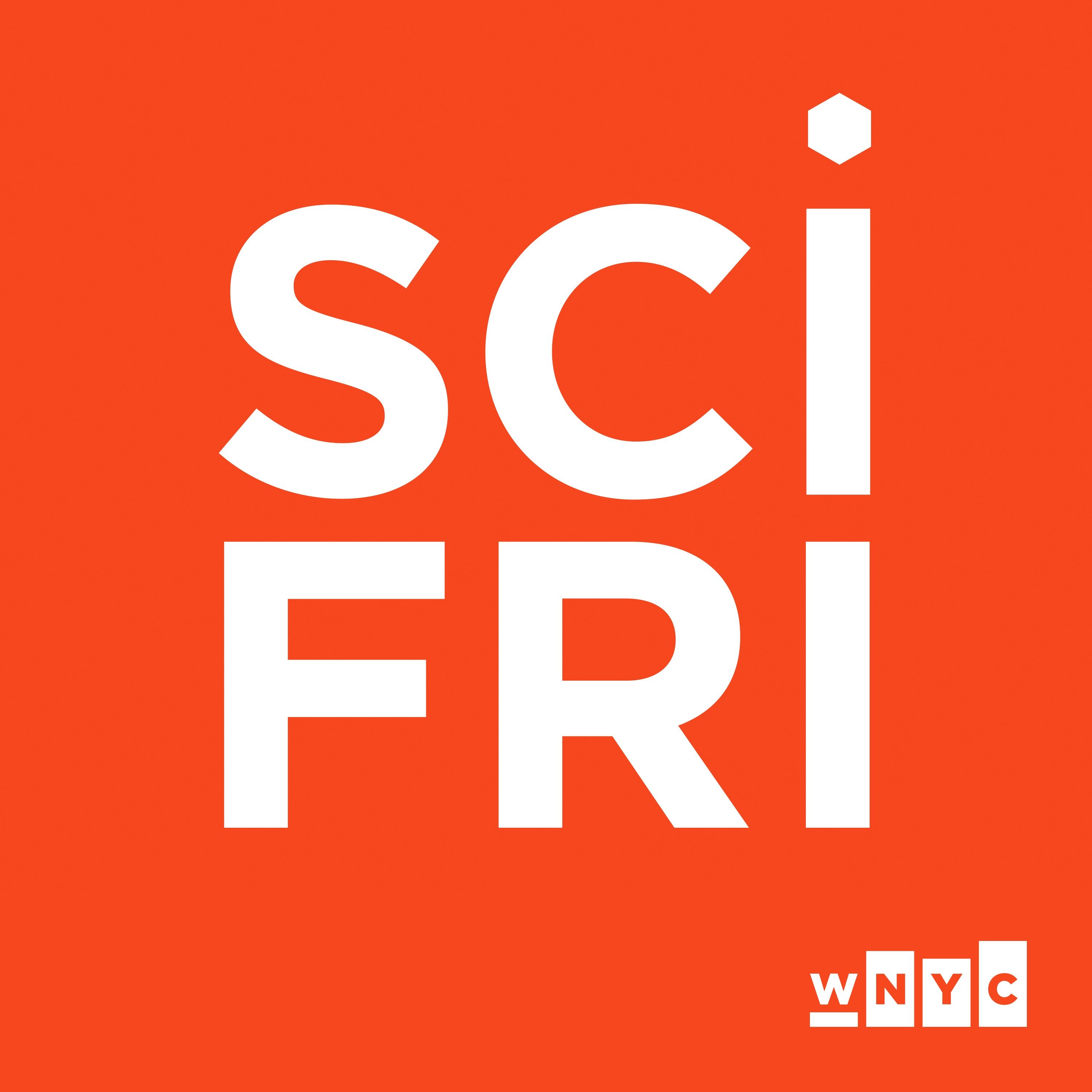

Science Friday
Science Friday and WNYC Studios
Covering the outer reaches of space to the tiniest microbes in our bodies, Science Friday is the source for entertaining and educational stories about science, technology, and other cool stuff.
Episodes
Mentioned books

7 snips
Jul 30, 2025 • 19min
A Reptile’s Baffling Backfin And The Math Of Dashing Dinos
Richard Prum, an evolutionary biologist from Yale, uncovers the mystery of Mirasaura grauvogeli, an ancient reptile boasting a unique crest made from an entirely new biological material. He discusses its implications for the evolution of feathers and birds. Meanwhile, Peter Falkingham, a paleobiologist, reveals that longstanding equations for estimating dinosaur speeds might be flawed. Their insights challenge traditional views on dinosaur locomotion, prompting a reevaluation of how we understand these magnificent creatures.

Jul 29, 2025 • 13min
NASA Employees Protest Cuts In Formal Dissent Letter
Cady Coleman, a retired NASA astronaut and author based in Massachusetts, discusses the profound impact of proposed budget cuts on NASA's critical missions. She shares insights on the formal dissent letter, "The Voyager Declaration," signed by hundreds of employees, highlighting their concerns about the effects of rapid funding reductions. Coleman emphasizes the necessity of sustained investment in scientific innovation and the importance of fostering a culture of accountability within the agency to ensure the safety and success of future space exploration.

11 snips
Jul 28, 2025 • 19min
Where Are We On The Science Of Menopause?
Monica Christmas, an Associate Professor of Obstetrics at the University of Chicago, and Carrie Karvonen-Gutierrez, an Associate Professor of Epidemiology at the University of Michigan, dive into the evolving conversation around menopause. They discuss how it’s become mainstream, fueled by celebrity awareness and social media. The duo tackles misconceptions, the significance of hormone therapy, and the disparities in menopausal experiences across demographics. They advocate for better health policies and highlight the potential liberation menopause can offer.

14 snips
Jul 26, 2025 • 13min
EPA To Shut Down Scientific Research Arm
Jennifer Orme-Zavaleta, who dedicated 40 years to the EPA, discusses the agency's controversial decision to shut down its Office of Research and Development. She highlights the critical research conducted on pollutants and toxic chemicals that informs public health standards. The conversation delves into the risks associated with this disbandment, including potential inefficiencies in environmental science and the dangers of cutting funding for crucial research partnerships. Orme-Zavaleta reflects on the legacy of the EPA and the implications for environmental protection.

8 snips
Jul 25, 2025 • 18min
Parker Solar Probe Captures Closest-Ever Images Of The Sun
Join Nour Rawafi, project scientist for the Parker Solar Probe at Johns Hopkins, as she unveils the stunning details of recent solar images captured closer than ever before. She discusses how these incredible visuals reveal the sun’s surface, solar wind flows, and explosive gas eruptions. Nour emphasizes the importance of these findings in predicting solar storms that could disrupt technology on Earth. Their potential impact on clean energy solutions is also explored, along with the deep emotional connection we share with sunlight.

11 snips
Jul 24, 2025 • 19min
Climate Change Is Upending The Home Insurance Market
Benjamin Keys, a climate change researcher at the Wharton School, joins the discussion on how climate change is reshaping the home insurance market. He highlights the increasing difficulty homeowners face in obtaining affordable insurance as natural disasters become more frequent. The conversation delves into the rising premiums and the challenges presented in high-risk areas like Florida and Colorado. Keys emphasizes the need for data-driven decisions and community collaboration to navigate these looming threats in the housing market.

12 snips
Jul 23, 2025 • 19min
What The Sigma Is Algospeak?
In this insightful discussion, Adam Aleksic, a linguist and TikToker known for his work on Algospeak, dives into the fascinating transformation of language in the social media age. He decodes how Gen Alpha's slang can puzzle adults and reveals the rapid evolution of terms born from memes and consumer culture. Adam also highlights the role of algorithms in shaping today's vocabulary and the unique communication styles that emerge from platforms like TikTok. Through humor and cultural analysis, he sheds light on the absurdity and creativity of modern language.

Jul 22, 2025 • 13min
How Millions Of Flies Can Help Stop The New World Screwworm
In this discussion, entomologist Sonja Swiger, a professor at Texas A&M, sheds light on the alarming resurgence of the New World screwworm, a voracious pest threatening livestock. She explains innovative strategies, including the aerial release of millions of sterile flies to combat this menace. Swiger also shares insights into past successful eradication efforts and the current urgency driven by climate change and rising awareness. The conversation highlights public reactions to these controversial methods and emphasizes the importance of education in pest management.

Jul 21, 2025 • 18min
Why Is The Scopes Trial Still Relevant 100 Years Later?
Brenda Wineapple, an esteemed author known for her works on American history, shares fascinating insights into the Scopes Trial, a pivotal event in 1925. She discusses how the courtroom drama highlighted the clash between science and belief, reflecting on its enduring relevance today. Wineapple delves into civil liberties, education rights, and how this historical trial echoes in modern debates over evolution and censorship. With connections to democracy and cultural tensions, she emphasizes the need to stay vigilant about the influence of these legacies in today's society.

Jul 18, 2025 • 19min
Why Don’t We Have A Vaccine For Lyme Disease?
In this discussion, Dr. Linden Hu, a Tufts University immunologist and Lyme disease expert, reveals why humans still lack a Lyme disease vaccine while dogs can get vaccinated. He addresses the environmental drivers behind rising Lyme cases and the hurdles researchers face in developing a human vaccine. The conversation also highlights the complexities of chronic Lyme disease and the need for better diagnostics. Hu shares innovative strategies aimed at combating this tick-borne illness, fostering optimism for future solutions.


